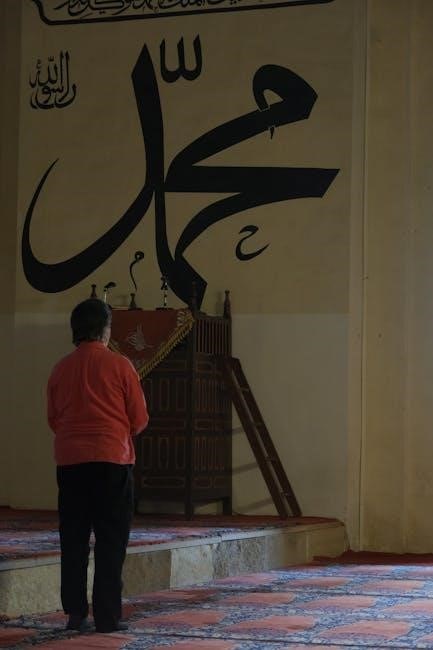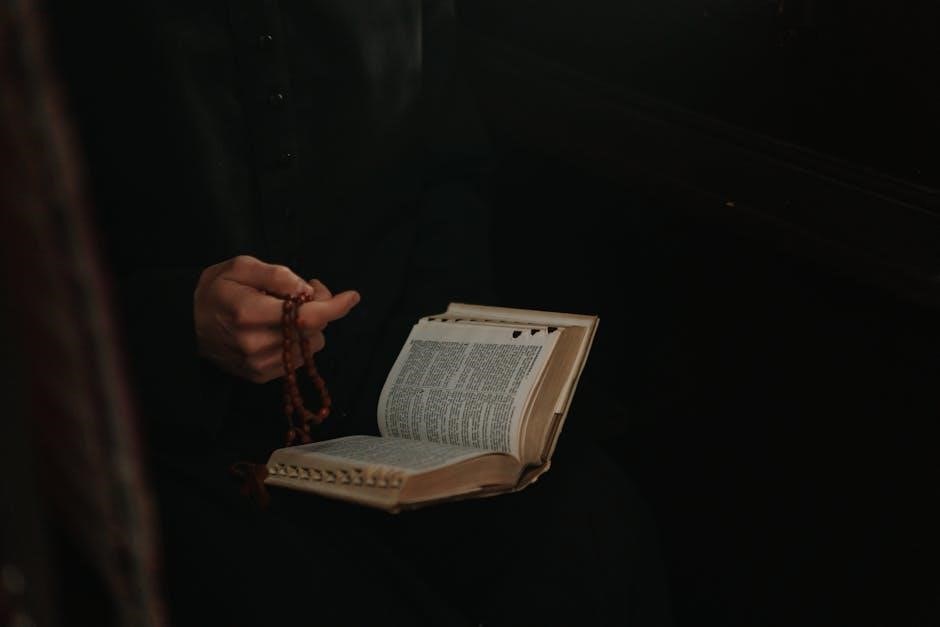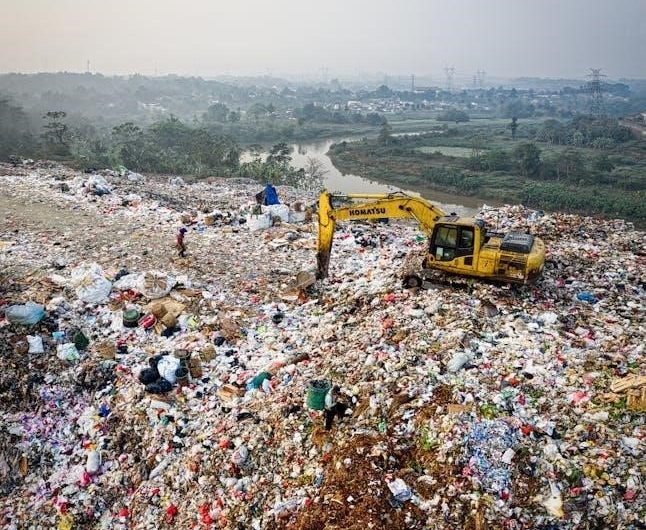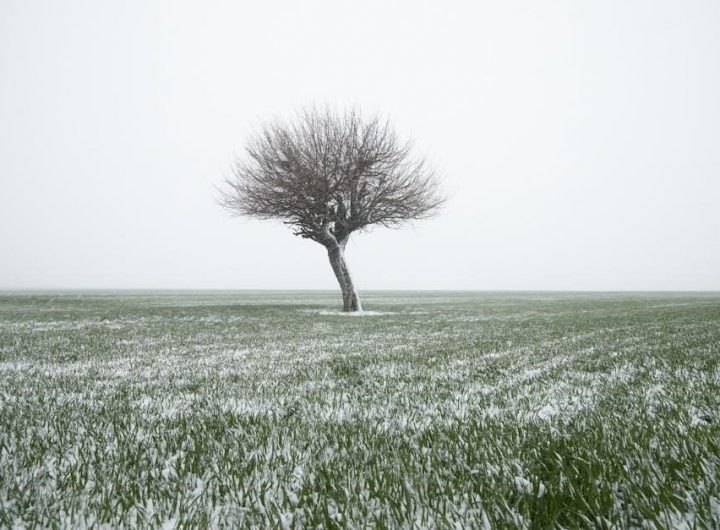
“God of Carnage,” a biting comedy by Yasmina Reza, translated by Christopher Hampton, explores civility’s collapse among middle-class parents, revealing primal instincts and social hypocrisy.
1.1 Overview of the Play
God of Carnage, written by Yasmina Reza and translated by Christopher Hampton, is a dark comedy that explores the breakdown of civility among two middle-class couples. The play begins with a polite meeting between parents discussing a playground altercation involving their sons. However, the conversation quickly escalates, revealing primal instincts, social hypocrisy, and the collapse of civilized behavior. Through sharp dialogue and intense character dynamics, Reza examines themes of human nature, class, and the thin line between order and chaos.
1.2 Author and Background
Yasmina Reza, a renowned French playwright, crafted God of Carnage, originally titled Le Dieu du Carnage. The play premiered in Zurich in 2006 and later in Paris in 2008. Translated by Christopher Hampton, it achieved international acclaim, winning the Tony Award for Best Play and the Olivier Award for Best New Comedy. Known for her biting wit and critique of middle-class life, Reza’s work, including Art, has captivated audiences with its sharp insights into human behavior and societal norms.
1.3 Relevance of the Title
The title God of Carnage reflects the play’s exploration of primal instincts and societal hypocrisy. It metaphorically portrays the chaos and savagery that emerge when civilized facades crumble. The “God” symbolizes the elevation of ego and societal expectations, while “Carnage” highlights the destruction of decorum. This duality underscores the themes of human nature’s darker aspects and the collapse of civility, setting the tone for the play’s intense and revealing character dynamics.

Plot Summary
The play revolves around two couples meeting to discuss a playground altercation between their sons. Tensions rise, revealing primal instincts and societal hypocrisy, as civility crumbles.
2.1 The Meeting of Two Couples
The play begins with Annette Reille and Alain Reille hosting Véronique Vallon and Michel Vallon in their home. The meeting is arranged to discuss a playground incident involving their sons; Initially polite, the conversation gradually unravels, exposing underlying tensions and raw emotions. The setting, with a coffee table and tulip arrangements, suggests civility, but the atmosphere quickly shifts as the parents’ true selves emerge. Their interaction reveals deep-seated resentments, leading to a clash of egos and societal expectations.
2.2 The Playground Incident
The story begins with a playground altercation where one boy hits another with a stick, resulting in a broken tooth. This incident prompts the meeting of their parents, the Reilles and the Vallons. The event is initially presented as a minor issue, but it serves as a catalyst for the tension that unfolds. The injury symbolizes the underlying conflict and societal expectations, setting the stage for the adults’ clash of egos and moral judgment. The incident’s simplicity belies the deeper emotional and psychological complexities it reveals;
2.3 Escalation of Tensions
The initial politeness between the two couples gradually erodes as their discussion becomes increasingly heated. What begins as a civilized debate over responsibility escalates into personal attacks and unveiled animosity. The atmosphere grows tense, with alliances shifting and tempers flaring. Petty squabbles and underlying resentments surface, exposing the true nature of their relationships. The meeting descends into chaos, revealing the primal instincts and raw emotions beneath their polished exteriors, as civility gives way to unfiltered hostility and undeniable truths about their characters.
Characters and Their Dynamics
The play revolves around four complex characters: Véronique, Michel, Annette, and Alain. Their interactions reveal shifting alliances, power struggles, and the unraveling of their polished facades, exposing raw emotions and primal instincts that drive the escalating tensions.
3.1 Annette Reille
Annette Reille, one of the central characters, is portrayed as a polished, upper-middle-class mother, whose seemingly perfect facade gradually crumbles. Her manipulative nature and underlying tensions with her husband, Alain, are central to the play’s dynamics. Annette’s interactions with Véronique and Michel reveal her hypocrisy and primal instincts, as the evening progresses. The play strips away her veneer of civility, exposing raw emotions and revealing her true self. Her character serves as a mirror to societal expectations and the breakdown of human decency in conflict situations.
3.2 Alain Reille
Alain Reille, Annette’s husband, is a self-assured businessman whose polished exterior hides his true nature. His interactions with Annette reveal underlying tensions and a manipulative streak. Alain’s character is defined by his sharp wit and tendency to use humor as a shield, masking his own flaws. As the play progresses, his civility crumbles, exposing his primal instincts and hypocrisy. His dynamic with the other characters, particularly Michel, highlights his inability to confront his own shortcomings, making him a complex figure in the exploration of human nature and societal norms.
3.3 Véronique Vallon
Véronique Vallon, a cultured and intellectual writer, initially presents herself as composed and refined. Her adherence to societal norms and artistic interests create a facade of superiority. However, as tensions rise, her polished demeanor cracks, revealing a manipulative and critical nature. Her interactions with Annette and Michel expose her own flaws, including her judgmental attitude and strained marriage. Véronique’s character serves as a mirror to the hypocrisy and primal instincts lurking beneath the surface of civilized behavior, making her a pivotal figure in the play’s exploration of human duplicity.
3.4 Michel Vallon
Michel Vallon, Véronique’s husband, is a laid-back, sarcastic businessman who often undermines his wife’s pretentiousness. His casual demeanor contrasts with Véronique’s intellectual posture, revealing a strained marriage. Michel’s pragmatism and tendency to provoke others highlight his role in escalating tensions. Despite his humorous remarks, his passive-aggressive behavior exposes his own flaws and insecurities. His interactions with the Reilles and Véronique showcase his disregard for social niceties, making him a key figure in the play’s exploration of human nature and the breakdown of civility.
Themes and Motifs
The play explores themes of civility vs. savagery, social class, and primal instincts, uncovering the hypocrisy and raw emotions hidden beneath polite societal facades.
4.1 Civility vs. Savagery
The play masterfully explores the tension between civility and savagery, as polite exchanges between parents devolve into raw, primal behavior. Initially, the characters maintain a civilized facade, discussing their children’s conflict with restraint. However, as tensions rise, their true, savage instincts surface, revealing deep-seated frustrations and social hypocrisies. This contrast highlights the fragility of societal norms and the ease with which human nature can revert to its baser instincts when provoked. The theme underscores the duality of human behavior, blending humor with biting commentary on modern life.
4.2 Social Class and Hypocrisy
The play critiques the pretensions of middle-class parents, exposing the hypocrisy beneath their polished exteriors. Through their interactions, Reza highlights how social status and material comfort mask insecurities and judgmental attitudes. The characters’ attempts to present themselves as refined and morally superior crumble as their true selves emerge. This theme underscores the gap between outward appearances and inner realities, using humor to satirize the superficiality of societal expectations and the competitive nature of class-conscious parenting.
4.3 Human Nature and primal instincts
4.3 Human Nature and Primal Instincts
The play delves into the primal instincts lurking beneath civilized behavior, as the characters’ facades crumble. What begins as a polite meeting escalates into chaos, revealing raw emotions and base impulses. Reza uses dark humor to expose how quickly societal norms are shed, uncovering the animalistic tendencies hidden within. The breakdown of civility highlights the duality of human nature, where rationality gives way to primal reactions, leaving the audience to reflect on their own capacity for savagery beneath the surface of polite society.
Comedy and Satire in the Play
Dark humor and sharp satire dominate the play, exposing societal hypocrisies and the absurdity of middle-class parenting, blending comedy with a biting critique of civilized norms.
5.1 Dark Humor
God of Carnage masterfully employs dark humor to highlight the absurdity and hypocrisy of its characters. The play’s biting wit and ironic dialogue underscore the collapse of civility, revealing primal instincts beneath polished facades. Through sharp, uncomfortable laughs, Reza exposes the flaws of middle-class parenting, turning a seemingly innocuous meeting into a chaotic unraveling. This dark comedy not only entertains but also forces audiences to reflect on their own societal roles and the thin line between civility and savagery, making it a compelling and thought-provoking experience.
5.2 Satirical Portrayal of Middle-Class Parents
Yasmina Reza’s God of Carnage delivers a scathing satire of middle-class parents, exposing their hypocrisy and shallow progressive values. The play ridicules their pretentious civility, revealing how quickly they abandon decorum when their egos are threatened. Through their petty squabbles and competitive behavior, Reza mocks the societal facade of sophistication, laying bare their primal instincts and self-serving attitudes. This satirical lens not only critiques modern parenting but also reflects broader societal flaws, making the play a sharp commentary on human behavior and class dynamics.

Availability of “God of Carnage” in PDF
God of Carnage is widely available in PDF format through platforms like Open Library, archive.org, and various theatrical websites, offering the full script for easy access and study.
6.1 Sources for Download
The PDF version of God of Carnage is available through various online platforms, including Open Library, Archive.org, and theatrical websites. Open Library offers free access to the play, while sites like Archive.org provide downloadable versions for educational purposes. Additionally, some theatrical platforms and script repositories host the PDF for easy access. These sources ensure that readers can explore the play’s sharp dialogue and thematic depth conveniently.
6.2 Features of the PDF Version
The PDF version of God of Carnage offers a clean, readable format of the full script, including dialogue, stage directions, and character interactions. It preserves Yasmina Reza’s sharp dialogue and thematic depth, making it ideal for study or performance preparation. Many versions include introductions, analysis, or study guides, enhancing its educational value; The PDF is widely compatible with digital devices, ensuring accessibility for readers and theatrical practitioners alike.
6.3 Reasons for Its Popularity in Digital Format
The PDF version of God of Carnage is highly sought after due to its accessibility and convenience. It allows readers to easily access the full script, study guides, and analysis from various devices. The digital format is ideal for educational purposes, enabling students and educators to highlight and annotate key sections. Its popularity is also driven by the play’s acclaim, including its Tony and Olivier Awards, making it a widely studied and performed work in modern theatre.

Adaptations and Performances
God of Carnage has been adapted into a film, Carnage, directed by Roman Polanski. The play has also seen numerous stage productions worldwide, including notable runs in Zurich and Paris.
7.1 Notable Stage Productions
God of Carnage premiered in Zurich in 2006, directed by Jürgen Gosch, and later in Paris at Theatre Antoine in 2008. It gained acclaim in London’s West End and on Broadway, winning Tony Awards. Notable productions include those by Studio 180 Theatre and David Mirvish, showcasing its global appeal. The play’s intense dialogue and dark humor have made it a favorite in international theater circuits, with performances in multiple languages and countries.
7.2 Film Adaptation (“Carnage”)
Directed by Roman Polanski, Carnage (2011) is the film adaptation of God of Carnage. Starring Jodie Foster, Kate Winslet, Christoph Waltz, and John C. Reilly, it captures the play’s intense dynamics. The movie premiered at the Venice Film Festival and received critical acclaim, maintaining the dark humor and societal critique of the original play. Its success underscores the universality of Reza’s exploration of human nature, translating seamlessly from stage to screen while retaining its biting satire and emotional depth.
7.3 Director and Cast Highlights
Roman Polanski directed the film adaptation, bringing his signature intensity to the material. Notable stage directors include Ian Cole and Roy Surette, who emphasized the play’s dark humor and character dynamics. The cast, featuring actors like Jodie Foster and Christoph Waltz, delivered performances that highlighted the characters’ complexity. Their portrayals of primal instincts and societal roles were praised for depth and nuance, earning acclaim in both stage and screen productions. These collaborations showcased the play’s universal appeal and its ability to resonate across different mediums.
Reception and Awards
“God of Carnage” received widespread critical acclaim, earning the Tony Award for Best Play and the Olivier Award for Best New Comedy. Its sharp dialogue and intense character dynamics resonated with audiences, solidifying its place as a modern theater classic.
8.1 Critical Acclaim
God of Carnage garnered widespread critical acclaim for its sharp dialogue and nuanced exploration of human behavior. Critics praised its ability to balance dark humor with profound insights into middle-class parenting. The play’s progression from civility to chaos resonated deeply, highlighting the thin line between societal norms and primal instincts. Reviewers lauded its psychological depth and the cast’s performances, cementing its reputation as a gripping and thought-provoking theatrical experience. Its success lies in its universal themes, making it a standout in modern theater;
8.2 Tony and Olivier Awards
God of Carnage won the Tony Award for Best Play in 2009 and the Olivier Award for Best New Comedy in 2008. These prestigious accolades highlighted its global appeal and artistic merit. The play’s sharp wit and insightful portrayal of middle-class dynamics resonated with audiences and critics alike. Its success in both the U.S. and U.K. solidified Yasmina Reza’s reputation as a master of contemporary theater. The awards underscored the play’s ability to blend dark humor with profound social commentary, making it a landmark production in modern drama.
8.4 Audience Reception and Impact
God of Carnage has left a lasting impression on audiences worldwide, sparking both laughter and reflection. Its relatable themes of human nature and societal expectations resonate deeply, making it a favorite in theaters and classrooms. The play’s ability to provoke thought about civility and primal instincts has led to widespread discussions. Its popularity in PDF format has further expanded its reach, allowing readers to engage with its sharp dialogue and complex characters at their convenience. This accessibility has cemented its influence in modern theater and education.

Educational and Analytical Resources
God of Carnage study guides and analysis are widely available online, offering deep insights into themes, characters, and dramatic structure. PDF resources are popular for classroom use.
9.1 Study Guides and Analysis
Study guides and analyses of God of Carnage are readily available in PDF formats, offering in-depth explorations of themes, character dynamics, and dramatic structure; These resources provide critical insights into Reza’s exploration of civility, social class, and human nature. PDF guides often include summaries, discussion questions, and essay prompts, making them invaluable for students and educators. Platforms like Open Library and academic websites host these materials, enabling easy access for those seeking to analyze the play’s complexities and relevance in modern theatre.
9.2 Themes for Discussion
Themes in God of Carnage spark lively discussions, particularly civility vs. savagery, social class, and human nature. The breakdown of parental composure reveals primal instincts, questioning societal norms. PDF guides highlight these themes, encouraging analysis of how Reza critiques middle-class hypocrisy. Discussions often focus on the characters’ descent into chaos, mirroring broader societal issues. These themes resonate universally, making the play a rich subject for debates on morality, parenthood, and the illusion of refinement.
God of Carnage, a Tony Award-winning play by Yasmina Reza, masterfully critiques societal norms through its biting humor and exploration of human nature, solidifying its relevance in modern theatre. The availability of its PDF version has further amplified its accessibility and popularity, ensuring its enduring impact on both stage and literary discussions.
10.1 Significance of “God of Carnage” in Modern Theatre
God of Carnage remains a cornerstone of contemporary theatre, offering a sharp critique of societal norms and human behavior. Its dark humor and unflinching portrayal of middle-class hypocrisy resonate universally, making it a timeless commentary on civility and primal instincts. The play’s compact structure and intense character dynamics ensure its relevance, while its availability in PDF format has broadened its reach, inspiring discussions and analyses among audiences and scholars alike, solidifying its place as a modern theatrical masterpiece.
 salesforce admin certification dumps 2020 pdf free
salesforce admin certification dumps 2020 pdf free  exercise band workouts pdf
exercise band workouts pdf  12 days of christmas printable pdf
12 days of christmas printable pdf  s92 bus schedule pdf
s92 bus schedule pdf  diet plan for breastfeeding mothers to lose weight pdf
diet plan for breastfeeding mothers to lose weight pdf  u.s. coin book pdf
u.s. coin book pdf  amc past papers with answers pdf
amc past papers with answers pdf  tv guide monroe michigan
tv guide monroe michigan